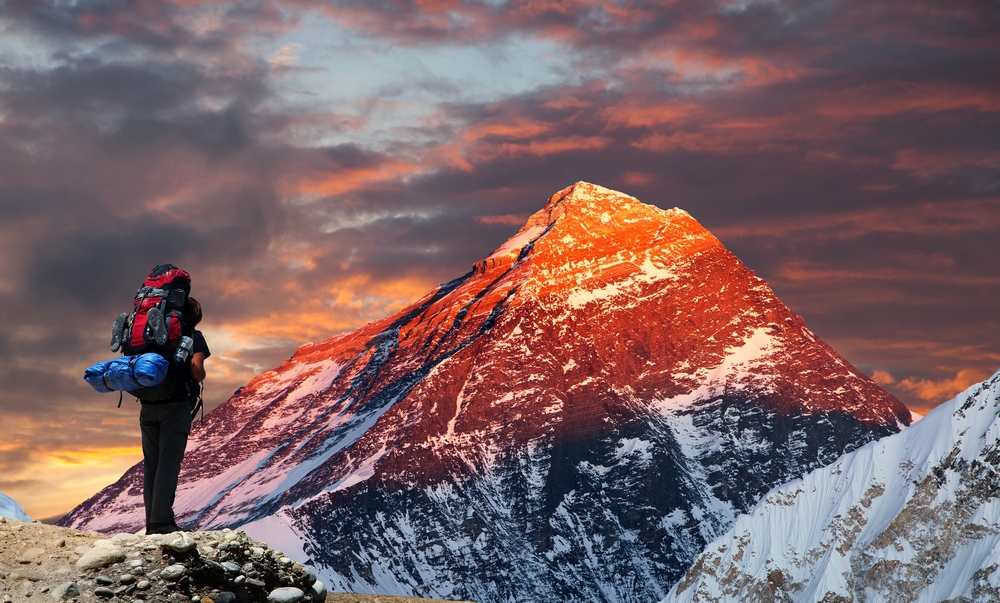Everest to End Duchenne to Hold Second Fundraising Trek to Mount Everest Base Camp

Everest to End Duchenne, an organization raising funds to support research to end Duchenne muscular dystrophy, is looking for hikers, outdoor enthusiasts and climbers to take part in its second trek to Mount Everest Base Camp on Sept. 25.
The treks represent the challenge that boys with Duchenne MD face every day as their muscles lose strength and function. But you don’t have to be an elite athlete to join in.
This year, the Everest team will create a flag to wave at Base Camp with the names of nearly 1,000 people with DMD or who have lost their lives to it. They will carry the flag the entire journey to symbolize that they are carrying the 1,000 to the Rooftop of the World.
Those wanting to take part in the event must apply before Aug. 11.
Everest to End Duchenne collaborates with another nonprofit, the Hope for Gus Foundation, to raise funds for DMD research. The first trek, in 2015, was the Hope for Gus Foundation’s highest-grossing fundraising initiative ever. This year, the organizers expect a similar return.
You can help the team reach their goal of raising $10,000 by making a Go Fund Me donation or by becoming a trek sponsors.
The Hope for Gus Foundation was established by the parents of a boy named Gus. The 9-year-old has DMD, and is expected to have to use a wheelchair by age 12. Gus is taking part in a clinical trial of a drug that its developers hope can slow the progression of the disease.
“We are determined to find a treatment or a cure for my son Gus and thousands of kids just like him,” his mother, Tonya Dreher of Peterborough, New Hampshire, said in a press release. “I decided to challenge myself and anyone else who is touched by Duchenne with something that would be difficult for us, but impossible for Gus to ever do.
“Duchenne is devastating and will slowly take away all of Gus’ muscle function, and eventually end his life, if we do not find an effective treatment or a cure in time,” she said. “We embark on the second trek” to Everest “with renewed energy to raise twice as much money for medical research for DMD and to symbolically bring children who suffer from DMD to the rooftop of the world with us.”
To participate in the trek you must be at least 18 years old or go with a parent or guardian. You also have to have average health and fitness levels, be able to walk five to eight hours a day, and possess an adventurous spirit.
The 17-day journey will cover 120 kilometers, or about 72 miles. It begins in Kathmandu, including a visit to traditional Nepalese locations and villages, Buddhist monasteries and bazaars. It ends at Everest Base Camp, more than 18,000 feet above sea level, high in the Himalayas.
Although the trek is demanding, participants do not need to be experienced climbers or elite athletes. Participants must pay their own travel expenses and raise at least $1,000 for Duchenne research.






